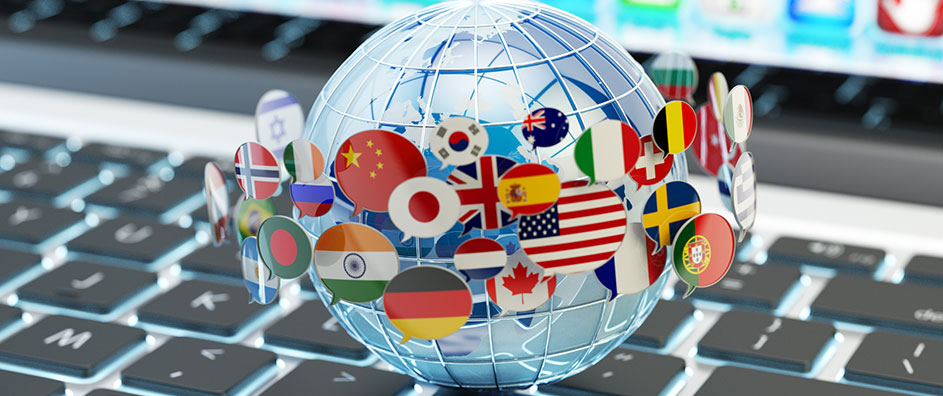The advent of globalization has engendered a plethora of challenges, not least of which concerns effective communication across diverse linguistic landscapes. In this context, one might ponder: How can a universal language facilitate understanding and unity among the multifarious cultures that inhabit our planet? The Bahá’í faith presents a compelling proposition—a universal auxiliary language—to address this challenge while also expounding on the philosophical underpinnings of unity and collaboration inherent in its teachings.
At the heart of Bahá’í principles lies the conviction that humanity is one, an idea that extends well beyond the simple acknowledgment of diversity. This ethos suggests a pending need for a linguistic medium that transcends cultural boundaries, enabling individuals from disparate backgrounds to engage in meaningful discourse. Consequently, the call for a universal language emerges not only as a pragmatic solution but also as a profound manifestation of the Bahá’í belief in the oneness of humankind.
Historically, language has played a pivotal role in shaping civilizations and facilitating the transfer of knowledge. Yet, as civilizations evolved, so too did the myriad languages spoken across the globe. The resultant linguistic diversity, while enriching, has often led to misunderstandings, prejudice, and even conflict. The Bahá’í teachings advocate for a systematic approach to linguistic unification, proposing that the adoption of a universal auxiliary language can mitigate the frictions borne out of misunderstandings that arise from linguistic plurality.
But what does this universal language entail? The Bahá’í community does not prescribe a single existing tongue, rather it envisions the development and adoption of a language that is accessible, simple, and universally teachable—a linguistic tool that would foster communication without exalting one culture over another. This democratic approach signifies a departure from historical attempts at linguistic imperialism, wherein dominant cultures have sought to impose their languages upon others.
The implementation of a universal language, however, is not without its obstacles. Firstly, there exists the formidable challenge of linguistic diversity itself. With approximately 7,000 languages spoken today, determining which language, if any, would serve as a suitable foundation for a universal language poses a significant dilemma. Furthermore, existing languages often carry deep cultural significance; uprooting them in favor of a new, auxiliary vernacular could engender resistance from communities that view such a shift as an encroachment on their identity.
In addition to these sociocultural considerations, practical implications loom large. Education systems worldwide would need to integrate the teaching of this auxiliary language into their curriculums, requiring extensive pedagogical resources and training for educators. There is also the potential for uneven distribution of linguistic capital, where individuals from affluent backgrounds may gain access to this language more readily than those from disadvantaged circumstances, thereby perpetuating existing inequalities. Thus, while the goal of a universal language is noble, the implementation strategy must be meticulously crafted to avoid reinforcing societal divisions.
Moreover, we must interrogate the nature of language itself. Language is not merely a means of communication; it is an embodiment of culture, history, and identity. The Bahá’í vision for a universal language invites a reevaluation of what it means to communicate. Would the adoption of a universal auxiliary language dilute individual cultures, or could it serve as a vessel for deeper intercultural understanding and collaboration? Such philosophical inquiries underscore the complexity of the interaction between language and culture, demanding a nuanced approach to this proposed paradigm shift.
Advocates of the Bahá’í call for a universal language posit that such a medium could engender a more harmonious global society. By facilitating clearer communication, a universal language might reduce animosities rooted in misunderstandings. As communities perceive one another through the lens of shared language, greater empathy and compassion could flourish. This potential for fostering a culture of peace is a vital impetus for the Bahá’í community and its advocacy for universal language initiatives.
In a world plagued by division, the Bahá’í imperative to seek out avenues for connection is notably relevant. The call for a universal language serves as a beacon of hope for an increasingly fractured globe. It implores individuals and communities to rise above their differences and come to a consensus on the importance of understanding one another. Despite the formidable challenges it may pose, the pursuit of a universal language holds promise as a means through which humanity might transcend its current crises in communication, thereby sparking the potential for unity, cooperation, and peace.
In summation, the Bahá’í teachings on the call for a universal language shed light on profound philosophical and practical dimensions of humanity’s quest for understanding. While the pathway to its implementation is fraught with challenges—linguistic, cultural, educational, and beyond—the rewards are equally significant. By embracing the possibility of a universal language, we can embark on a collective journey toward a more interconnected and compassionate world.
